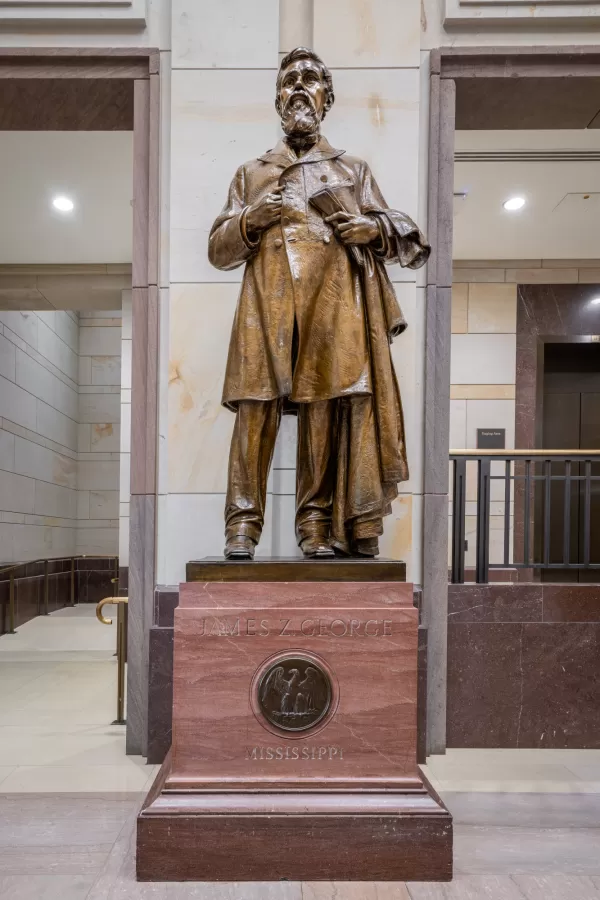This statue of James Zachariah George was given to the National Statuary Hall Collection by Mississippi in 1931.
James Zachariah George, Mississippi's "Great Commoner," was born on October 20, 1826, in Monroe County, Georgia, but moved to Mississippi when his widowed mother remarried. He served as a private in the Mexican War under Jefferson Davis. On his return, George studied law and was admitted to the bar. In 1854 he became a reporter of the Supreme Court of Mississippi, and over the next 20 years he prepared a 10-volume digest of its cases. As a member of the Mississippi Secession Convention, he signed the Ordinance of Secession.
A Confederate colonel during the Civil War, he was captured twice and spent two years in prison, where he conducted a law course for his fellow prisoners. After the war, he returned to the practice of law. In 1879 he was appointed to the Mississippi Supreme Court and immediately was chosen chief justice by his colleagues.
From 1881 until his death he represented Mississippi in the United States Senate, where he was recognized for his skills in debate, helped frame the future Sherman Anti-Trust Act, introduced the bill for agricultural college experiment stations, and encouraged the establishment of the Department of Agriculture. He also served as a member of the Mississippi Constitutional Convention of 1890 and successfully defended the constitution before the Senate and the Supreme Court. George died on August 14, 1897, in Mississippi City, Mississippi, where he had gone for health treatment.

